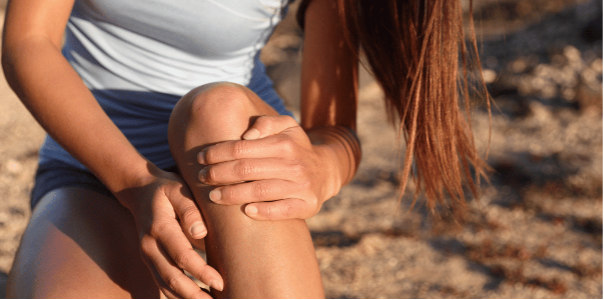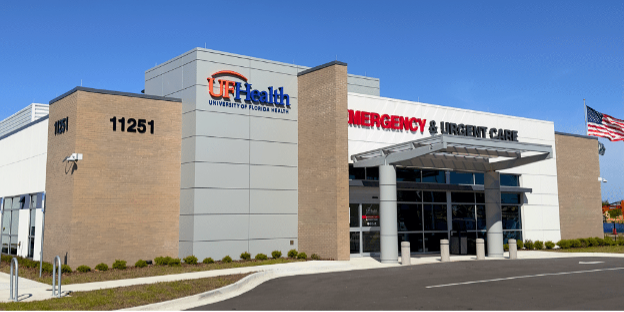Sprained Knee: Diagnosis and Treatment
- Category: General
- Posted On:

An injury to the ligaments connecting the upper and lower limbs at the knee joint is called a knee sprain. This type of injury usually presents itself as a tear or stretch of the ligaments.
The most commonly damaged knee ligaments include:
- Anterior cruciate ligament (ACL)
- Lateral collateral ligament (LCL)
- Medial collateral ligament (MCL)
- Posterior cruciate ligament (PCL)
The ACL and PCL form an X across the knee joint to stabilize the knee, while the LCL runs on the outside of the knee and the MCL on the inside of the knee. The diagnosis of a sprained knee depends on the injured ligament.
Symptoms of a Sprained Knee
The symptoms of a sprained knee are as follows:
- Instant pain after impact or twist
- Muscle spasms
- Pain when moving the knee
- Sensation of instability in the knee joint when walking
- Swelling
With a sprained ACL, the knee joint will pop and become unstable. A PCL sprain will cause the back of the knee to hurt. With MCL and LCL injuries, the knee will seemingly buckle in the opposite direction of the stretched ligament.

Sprained Knee Causes
A sprained knee usually occurs when the joint twists on impact or receives a direct hit. Knee sprains also happen when excessive weight strains the joint. Athletes are generally more at risk of knee strain, which can happen due to improper footwear, intense exercise or contact sports. Active people with a history of knee sprains also have a higher risk of re-injury.
Diagnosing a Sprained Knee
When diagnosing a sprained knee, doctors will perform a physical exam and request imaging tests. A doctor may order an X-ray to rule out broken bones or arthritis, and check for fluid around the knee joint. The patient may need to bend or walk on the affected leg so the doctor can assess the knee’s range of motion.
Sometimes, an MRI is required when diagnosing a sprained knee to determine the severity of the injury. An MRI will also show whether the ligament is torn or just stretched.
Sprained Knee Treatment
Sprained knee treatment depends on whether the ligaments are torn or stretched. If the ligaments are only slightly stretched, treating the injury at home is possible.
Home treatment includes:
- Compressing the knee using an elastic bandage.
- Elevating the knee to reduce swelling and icing the affected area every few hours.
- Pain medication
ACL injuries are treated surgically or non-surgically. With surgery, the recovery time can be up to 12 months. Non-surgical sprained knee treatment for ACL injuries includes physiotherapy and a knee brace.
Mild MCL injuries require a knee brace. But if the injury is severe, the patient must undergo ligament surgery.
An LCL sprain requires the R.I.C.E. (rest, ice, compression and elevation) method as treatment, NSAIDs for pain, and a knee brace. Serious LCL injuries may need surgery and physical therapy.
PCL sprains may lead to the use of crutches as part of treatment, as well as physical therapy. Severe sprains will need surgery to repair and reconstruct the ligament.
Preventing a Sprained Knee
Warming up and cooling down after exercise is essential in preventing a sprained knee. Athletes and active people should slowly increase their training regimens and rest regularly. Hydration plays a significant role in protecting ligaments, so sufficient water intake is essential. Running shoes and cross trainers should be replaced often to prevent the knees from becoming unstable.

Visit a UF Health Emergency & Urgent Care Center for Sprained Knee Treatment
A sprained knee can be extremely painful, and if not treated, it can lead to other health problems, including arthritis. At UF Health Emergency & Urgent Care Centers, our primary goal is to provide the residents of Northeast Florida with exceptional service and the proper billing for the care they need. Our combined emergency room and urgent care is fully equipped to handle everything from allergies to fractures to chest pain, with on-site labs, X-ray, ultrasound and CT, all under one roof. The ER and urgent care centers are open 24 hours a day, 7 days a week. No appointment is necessary — just walk in!
Find the UF Health Emergency & Urgent Care Center in Jacksonville nearest you at www.euc.ufhealthjax.org/locations.
